Dr Cornelius Huwa was trained as a professional medical Doctor in Malawi. In 2018, God called him to join the African Enterprise team as a full-time Evangelist and a Team Leader in Malawi. However, Dr Huwa had not received any theological or formal evangelism training, and this was his biggest challenge and hindrance in his fulfilment of his passion to train local churches and pastors in evangelism. This changed in 2019, when Dr Huwa was successfully trained by African Enterprise (AE) on the new curriculum of 4 modules covering 21 courses of evangelism and discipleship. The training increased Dr Huwa’s passion and commitment to missions and evangelism.
According to the AE International Missions Director, Emmanuel Kwizera, the need to train Lay Leaders, AE Associate Evangelists and non-theologically trained Pastors is massive and critical in Africa. In fact, some African governments, like Rwanda, introduced a new law that set a minimum standard for theological education among preachers and Pastors. This need of training evangelists and pastors, addressing false teachings, as well as responding to government requirements prompted African Enterprise to improve its training standards and systematically develop its School of Evangelism. Through this training, partner churches are equipped to understand:
- The Biblical foundations of evangelism and missions
- The Theology of proclamation Evangelism
- The biblical models of discipleship
- The integration of word and deed in Evangelism
Prayers requested: While African Enterprise celebrates the completion of the 4 modules (which cover 21 courses in Evangelism), as well as training all the AE national teams in 11 countries, the process continues. For the next phase, African Enterprise is planning to focus on:
- Developing AE’s training material online. This program will help Pastors and Evangelists to access the 21 courses online, download materials, and do the required exam and assignments.
- Developing the material to incorporate other Africa based Bible College information.
- Translating the AE School of Evangelism materials into French, Swahili and Portuguese and other local languages.
- For assistance with coordinating training materials across Africa and partnerships with Colleges and churches.
Please pray with us to see the church equipped to reach Africa with the Good News of Jesus through the work of AE.
School of Evangelism forms part of the Stratified Evangelism Process:

Reminiscing on Billy Graham’s landmark crusade in apartheid South Africa
“The South African Congress on Mission and Evangelism in Durban in March 1973 was, I believe, a turning point both in our own ministry and for South Africa.” – Michael Cassidy
When AE invited Dr. Billy Graham as a guest speaker for the Mission Congress, there was a frenzy of interest from the South African public. The Congress was a landmark event in segregated South Africa, as Christian leaders of all races and denominations united in pursuit of true Gospel transformation.
On Saturday the 17th of March 1973, a large evangelistic rally was held at Durban’s Kings Park rugby stadium. A record audience of between 45,000 and 50,000 gathered that day. In a landmark moment for South Africa, a racially diverse, yet peaceful crowd had gathered publicly.
In his autobiography Footprints in the African Sand – My life & times*, Michael Cassidy reflects, “Here was South Africa as it should really be – a glorious kaleidoscope of racial beauty and diversity. In fact, never did the segregationist way seem more unnatural and grotesque than in those moments.” He goes on to describe the ripple effects that the rally had on the nation, “Newspaper banners screamed in hyperbole: ‘Apartheid Doomed’. Beyond that, multitudes in that stadium and around the country via the media caught a vision of what South Africa could become.”
Dr. Graham gave a simple Gospel message that day, followed by an invitation to accept Christ. More than 4,000 people surged forward. Counsellors struggled to provide follow-up booklets to all the new believers, many of whom were unable to get near the platform area.
Michael Cassidy describes the beautiful scene that followed:
“Blacks counselled Whites. Whites counselled Indians. Coloureds counselled Blacks. And so it went, for an hour or more, as the stadium slowly began to empty. This was South Africa. The Beloved Country. The country to weep for. And pray for. And work for. Here it was in an identity crisis, and trying to find itself. And here was the Spirit of Jesus on the job, proclaiming good news to the poor, release to the captives, recovery of sight to the blind, and liberty to those who are oppressed… Of course, history would prove that we still had a long way to go. But a start had been made.”
In reflecting on that day at Kings Park, Prince Mntambo, an African pastor, said,
“Black alone looks dull. White or yellow alone look pale and empty – but black, brown, yellow and white look like beautiful flowers planted by God. That was the beauty of Kings Park with Dr. Billy.”
Please pray for our upcoming missions across Africa and for the Gospel to reach those that have never heard it before.
*Footprints in the African Sand – My life and times (by Michael Cassidy) is available for purchase from AE Australia. Contact:ae@aeint.org
(Paul and Timothy) went from town to town, instructing the believers to follow the decisions made by the apostles and elders in Jerusalem. So the churches were strengthened in their faith and grew larger every day. Acts 16:5
Leaders with solid foundations that can hold fast to the Gospel and proclaim it faithfully are needed across the African continent in order for the church to grow. African Enterprise’s Pastor Training Program aims to strengthen and further equip these leaders in the faith so that they in turn can strengthen others.
With our online PTC course being easy accessible and free, we have had people signing up and completing one module after the next during lockdown. Even in countries where we do not have offices, such as Emmanuel from Nigeria.
An ordained Anglican minister, Emmanuel lives in a rural setting near Jos, Plateau State in central Nigeria. Jos has frequently been the scene of inter-tribal and religious tensions. The most recent kidnapping of school children happened 400 km to the north.
Emmanuel has benefited enormously from studying PTC courses by distance and then online.
In his own words: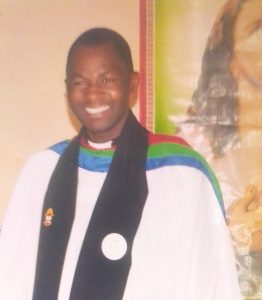
“I have a great aspiration to be a good teacher of God’s word. Truly speaking I have gained a lot, particularly in the area of missions, evangelism, preaching, teaching and pastoral care.
The benefits are not only limited to me alone, but have been extended to my parishioners as I have started teaching them also, and apparently the Community too is benefiting.
Please kindly extend my profound warm greetings and Peace to your members of staff, entire African Enterprise and the financial contributors who have been supporting this gesture, and making it easy and accessible to people like us, who have the opportunity to study, looking at the part of the world we are.
I must say this again, I am profusely grateful to you and the institution for opportunity given me.”
Thank you for supporting our PTC program and equipping pastors across Africa with knowledge and truth.
 We are also excited to announce our new partnership with the Africa Study Bible (ASB).
We are also excited to announce our new partnership with the Africa Study Bible (ASB).
The ASB aims to be ‘God’s Word Through African Eyes’, and was created to address the reality of life in Africa.
We are privilaged to be able to incorporate their great insights and study notes into the online version of the PTC. This will greatly assist in helping contextualise these notes to the African context. Watch this space for a formal press release coming soon.
If you are currently located in Africa you are eligible for a FREE digital edition of the Africa Study Bible for an entire year. The Africa Study Bible app is now on the Tecarta Bible App, the world’s best study Bible app which is available to download on Google Play Store and Apple App Store.
PTC prayer points
- Pray that the partnership with ASB will lead to more Christian leaders being strengthened in the faith.
- Pray for our development of online education in Africa (including mission preparation), with grateful thanks to Moore College for the moodle delivery platform.
- Pray for Emmanuel’s ministry to be effective and that he may persevere in a life of godliness.
It is a new year and we have new Foxfire teams across Africa, ready to joyfully and wholeheartedly serve God.
In Malawi the Foxfires were patiently waiting for the schools to open up on the 22nd of February so they can start reaching out to schools and youth groups. The Foxfires in South Africa have started a social media initiative called “Let’s talk” where they share a one minute video each week, speaking God’s truth and encouraging youth through the platform they prefer.
When COVID-19 forced everyone into lockdown, our 4 Foxfire teams were reaching out to friends, family and neighbours during lockdown. Supporting and encouraging others through the difficult time. Not only does Foxfires have a lasting impact on the youth that they reach out to, but being a Foxfire impacts the life of each young adult enrolled in the program.
Precious Owoko recently shared the impact being a Foxfire had on her life. She was a part of the Kenya Foxfires Youth Empowerment Program back in 2018.
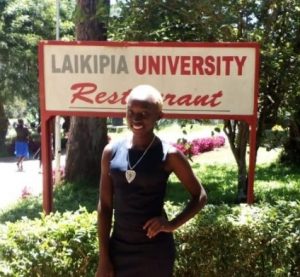 “I am Precious Owoko a student currently at Laikipia University in Nyahururu, Kenya, pursuing a Bachelor of Arts in Communication and Media. Today I take a short reflection of my tenure during the Foxfires Youth Empowerment Program in 2018 and the impact it has had in my life. I am glad that I gave part of my life to serve my fellow youth. I was effectively prepared to become a better person today. I am never the same!!
“I am Precious Owoko a student currently at Laikipia University in Nyahururu, Kenya, pursuing a Bachelor of Arts in Communication and Media. Today I take a short reflection of my tenure during the Foxfires Youth Empowerment Program in 2018 and the impact it has had in my life. I am glad that I gave part of my life to serve my fellow youth. I was effectively prepared to become a better person today. I am never the same!!
Foxfires program prepares one for the youth related ministry within the year and life after the program. It’s an important bridge that greatly equipped me for life in campus. The program fortified me with relevant skills that have enabled me to be focused in life and aim at the goals that I set while serving with AE. My leadership skills were enhanced, fine-tuned and refocused. I was able to discover amazing leadership abilities that I had not thought of. Today I serve the students as the class representative for the communication and media group. I am representing more than 300 students on the relevant meetings. I know that the confidence I portray was cemented in me during the foxfires program.
Foxfires made me esteem the ministry of young people. Once I enrolled in campus, I joined the Christian Union Movement (C.U). I wanted to serve and reach many with the Gospel. The skills of evangelism and discipleship have helped me to be involved in person to person witnessing and other missions aimed at reaching the student leaders. I have also helped in the rebranding of the arts department as a tool of reaching out the youth with skits, drama and dancing. This has greatly helped the Christian union to attract more students thus coming to experience Christ. Today, I am greatly honoured that I am serving the Christian Union as the secretary, a position that I only serve by God’s grace. There were many students who could have been elected to this position but I was favoured by God. My exposure during FYEP, to different youth ministry across Kenya has greatly improved my performance. Communication skills was a critical course in Foxfires that has helped me become better in handling the CU related communication. Recently, I was chosen by different Christian Unions within the Kenyan Central region as the secretary general of consortium of 11 Christian Unions. I can only attribute such as this achievement to AE FYEP.
The daily devotions that involved the reading of the word of God and prayers created in me a discipline of prayer and bible study. Some ask how I manage to keep track of my devotional life, I only share with them my experience in the FYEP.
I have been able to help others who have been in difficult life related issues. The knowledge gained in Foxfires has been a source of wealth that I have constantly used to walk with others. I am happy that I can continue with the ministry of Foxfires even in campus. I am still setting the youth ablaze for Christ!
Today I know how to deal with peer pressure, handle relationships, financial management and saving skills, conflict management, balance between academic and my other roles and other courses handled while in FYEP.
I am proud to have been a Foxfire and to be continuing with the theme of Once a Foxfire, Always a Foxfire. I know supporting FYEP program is making a difference in many. It’s transforming the young people during the tenure and after the program. It’s never in vain.

God bless the Foxfires Youth Empowerment Program.”
Thank you for supporting our Foxfire teams in Africa and for impacting the lives of many young adults.
“My Name is John Kalenzi, I’m married to Joselyne Bivugire Kalenzi, and we have two children: a boy called David Kalenzi – 17 years old and a girl called Esther Ineza Kalenzi – 12 years old. I became Team Leader of African Enterprise Rwanda in 2008.
My normal day as a Team Leader of a local and growing para- church organisation is comprised of very many activities:
I wake up at 4:30 a.m. and pray with my wife Joselyne after reading a bible passage. From 5:20 a.m. to 6:00 a.m. I check emails and respond to the urgent ones, after which I prepare myself and then go to the office. I normally leave home at 6:30 a.m. and it is a 30 minutes’ drive from home to the office. I participate in the staff morning devotions from 7:00 a.m. to 8:00 a.m. This enables me to provide spiritual oversight to the AE Staff. With affect from 8:00 a.m. to 10:00 a.m., I meet AE staff and different outsiders like pastors and leaders or staff of different organizations who come to my office for one reason or another. 10:00 a.m. to 11:00 a.m., I check reports from heads of departments to ensure successful implementation of all projects run by AE Rwanda and maintain the culture of AE among all staff and projects. 11:00 a.m. to 1:00 a.m., I deal with office work that ensures efficiency and accountability, after which I address the challenges as they arise.
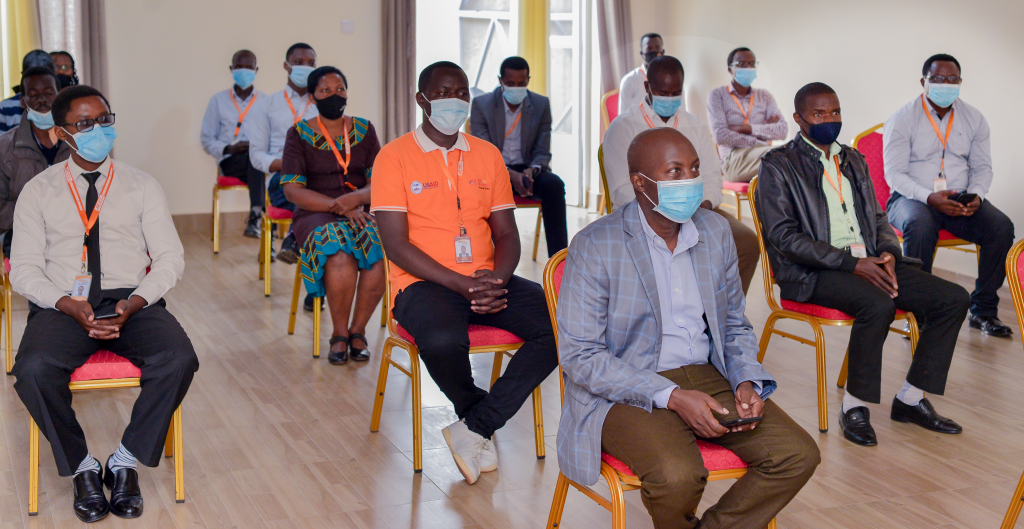
Time for lunch at AE Rwanda is from 1:00 p.m. to 1:30 p.m., so I share a meal with the staff and have some catch up and refreshing time, where we talk about different topics, and have some bit of fun. I use the biggest part of the afternoon – 1:30 p.m. to 5:30 p.m. to develop fundraising opportunities and cultivate new donor relationships which include, generating and reflecting on ministry ideas, meeting church leaders, writing concept notes, writing thank you notes, making phone calls to local supporters and the like. From 5:30 p.m. to 7:30 p.m., I respond to emails, scan whether administrative systems in place are adhered to, and then set objectives and plans for the next day. From 7:30 p.m. to 8:00 p.m. I travel home, where I join my family. After a short time of relaxation, we have dinner together, then evening devotions from around 9:20 pm to 9:50 pm and then head to bed.
The day I have described is a normal one, but there are many times when I am invited for meetings on a short notice, or get involved in an eventuality, which causes my plan not to run as prior arranged. During such cases, I must push some of the activities to the next most convenient time.”
Current focus areas:
- Mobilizing Rwandans to pray that the Lord will awaken the slumbering spirits in our nation so that they might find everything they are searching in Him.
- Training 480 AEE staff and associates on some factors that contribute to effective personal evangelism.
- Equip 1,200 faith leaders to fight Covid-19 in communities and support them with personal protective equipment.
- We are responding in every community where we work in one form or another and our Covid-19 emergency response, aims to provide targeted support to reach at least 500,000 most vulnerable people including 260,000 children -focusing on situations of pre-existing vulnerability and fragility (in every community where we work, we are committed to both limiting the spread of Covid-19 and reducing its impact).
Prayer points:
Pray with AEE Rwanda Team Leader that:
- God’s presence would move greatly in AEE Rwanda ministry and touch lives.
- God would give AEE staff a heart for his ways and discernment to see his direction.
- God would give us opportunities to share his Gospel with others.
- God would mold our character into his likeness.
- Unsaved Rwandans would come to know the Lord, that their eyes would be opened to see the truth.
- Children of Rwanda will receive joy and hope as their tangible needs are met.
- Join AEE Rwanda to pray for healing, provision, wisdom, and opportunities to serve.
Michael Cassidy shares his thoughts
What makes Africa relevant to those of us who live in Australia? We recently chatted to Michael Cassidy about the obvious question, “Why Africa?”, and here is what he had to say:
‘AE is called to serve Africa. Although evangelism is needed throughout the world, the calling of AE is a specific one, namely “To evangelise the cities of Africa through word and deed in partnership with the Church.” So it is for this cause that we call people to invest.
Sub-Saharan Africa is immensely responsive to the Gospel, making evangelism in Africa wonderfully worthwhile. A vast percentage of Africa’s population are ready to receive the seed of the Gospel, and in our missions, we see thousands upon thousands of people responding – unlike most other parts of the world. 20% of the world’s youth live in Africa, and Africa’s young people are particularly receptive to the Good News of Christ.
Africa is a continent of the future. While other countries may celebrate their history, Africa is pulsating with new life and constantly looking to new horizons.
What excites me about the African Church, is that it is very mission-minded. Africa is now sending missionaries to evangelise and plant churches in other parts of the world. Some of the biggest and most vital churches in cities like London or Brussels are African, and their influence on the spiritual life of those cities is considerable. So investing in the African Church is also investing in a new and marvellous mission movement. Incidentally, when I have travelled together with African colleagues on various ministry trips, I have noticed an increased level of interest and openness to the African voice, as opposed to that of a white Anglo-Saxon.
The old Christendom of the Northern hemisphere may have come and gone. However, a new Christendom, a culture where presuppositions are Christian, is being born in the Southern hemisphere, in Africa and Latin America. To pray and give towards the Lord’s work in Africa is a worthy cause. It is helping to shape and build a new Christendom which may well re-evangelise the old one.
I believe that the hour of the African Church has come.’
Listen to Michael Cassidy’s Christmas Message here.



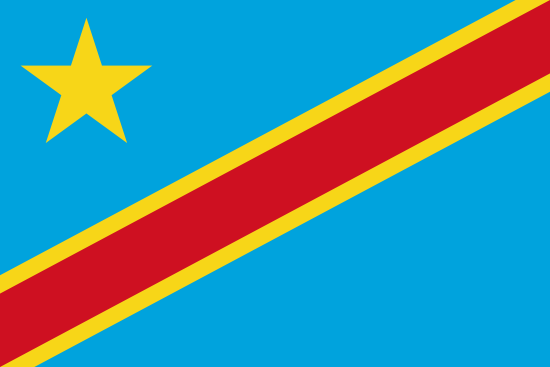
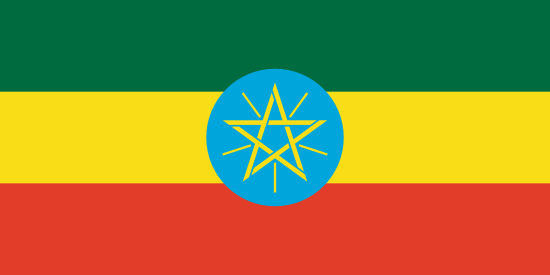
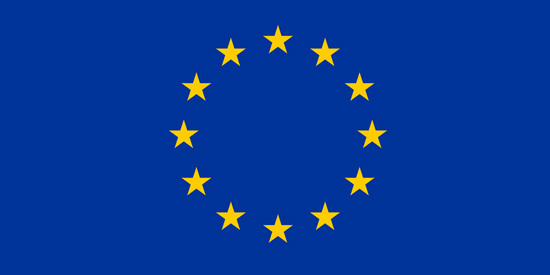
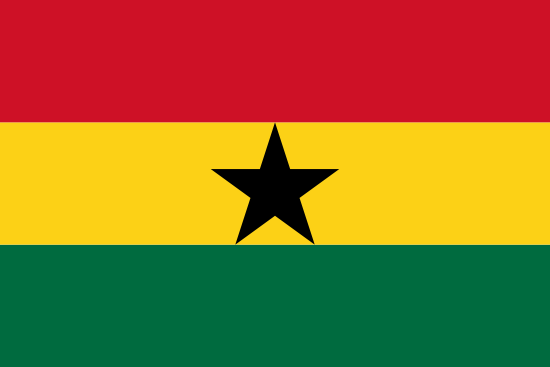


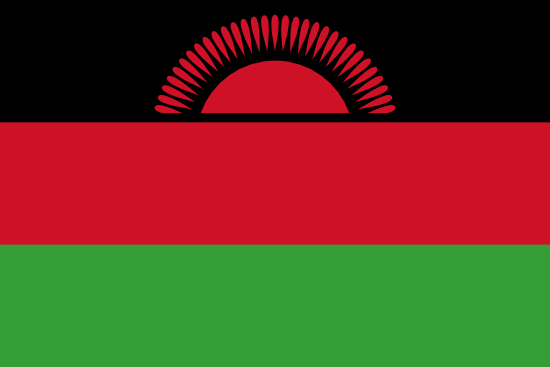
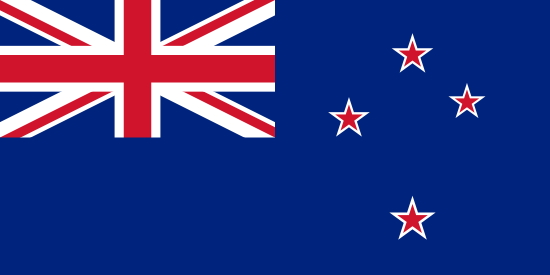
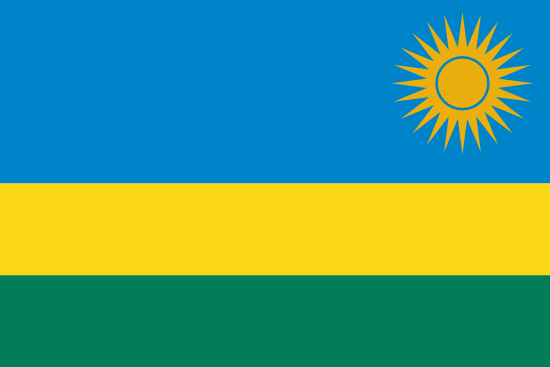
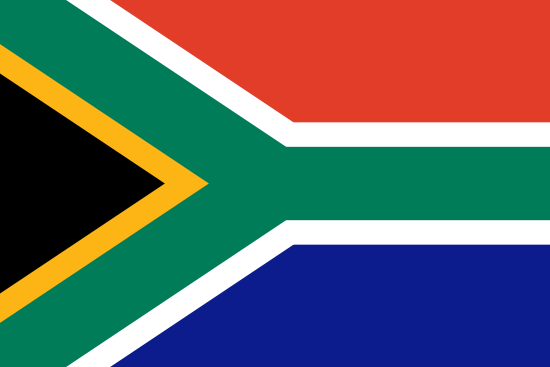



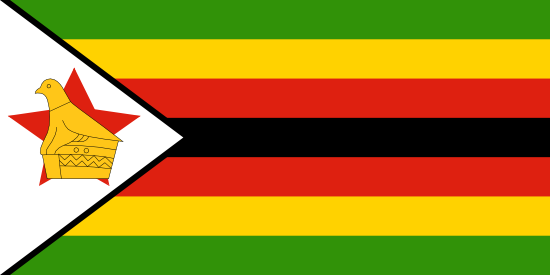


 We are also excited to announce our new partnership with the Africa Study Bible (ASB).
We are also excited to announce our new partnership with the Africa Study Bible (ASB). “I am Precious Owoko a student currently at Laikipia University in Nyahururu, Kenya, pursuing a Bachelor of Arts in Communication and Media. Today I take a short reflection of my tenure during the Foxfires Youth Empowerment Program in 2018 and the impact it has had in my life. I am glad that I gave part of my life to serve my fellow youth. I was effectively prepared to become a better person today. I am never the same!!
“I am Precious Owoko a student currently at Laikipia University in Nyahururu, Kenya, pursuing a Bachelor of Arts in Communication and Media. Today I take a short reflection of my tenure during the Foxfires Youth Empowerment Program in 2018 and the impact it has had in my life. I am glad that I gave part of my life to serve my fellow youth. I was effectively prepared to become a better person today. I am never the same!!
